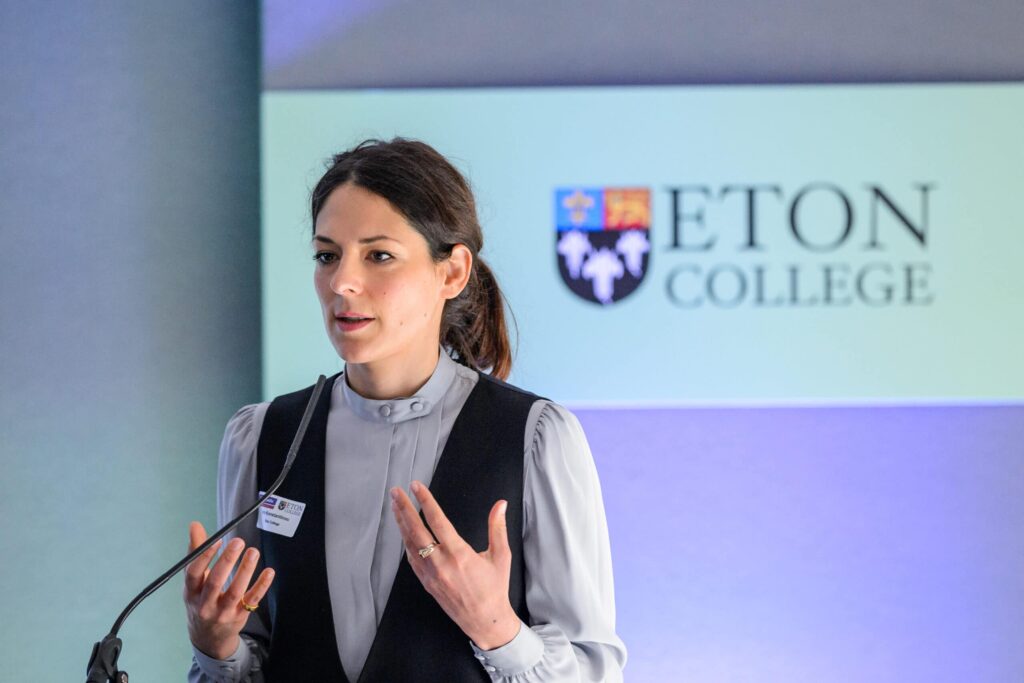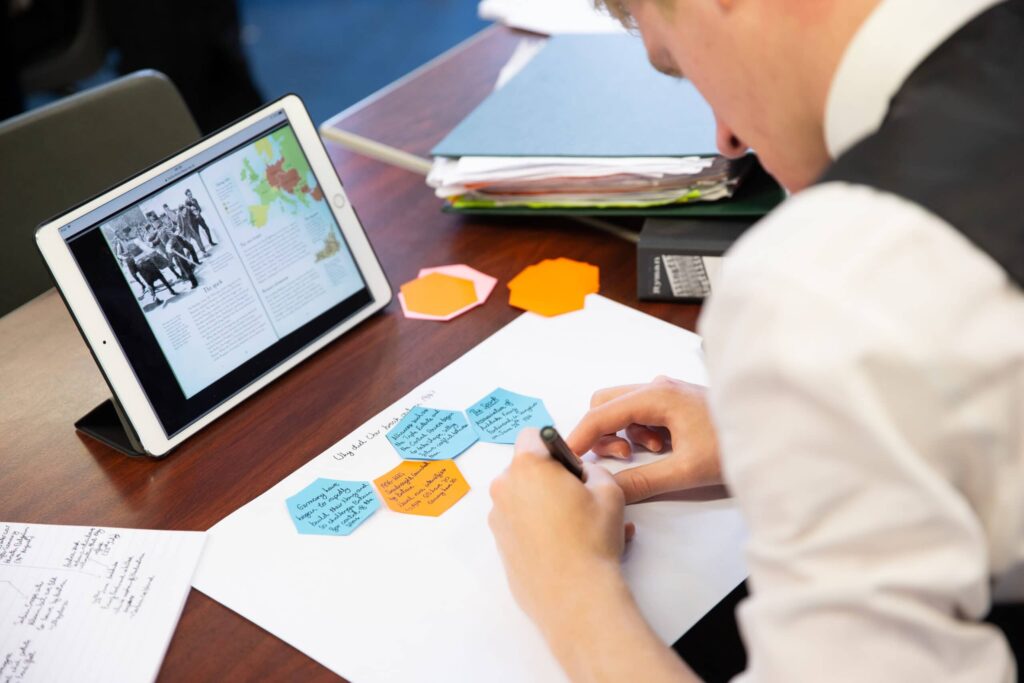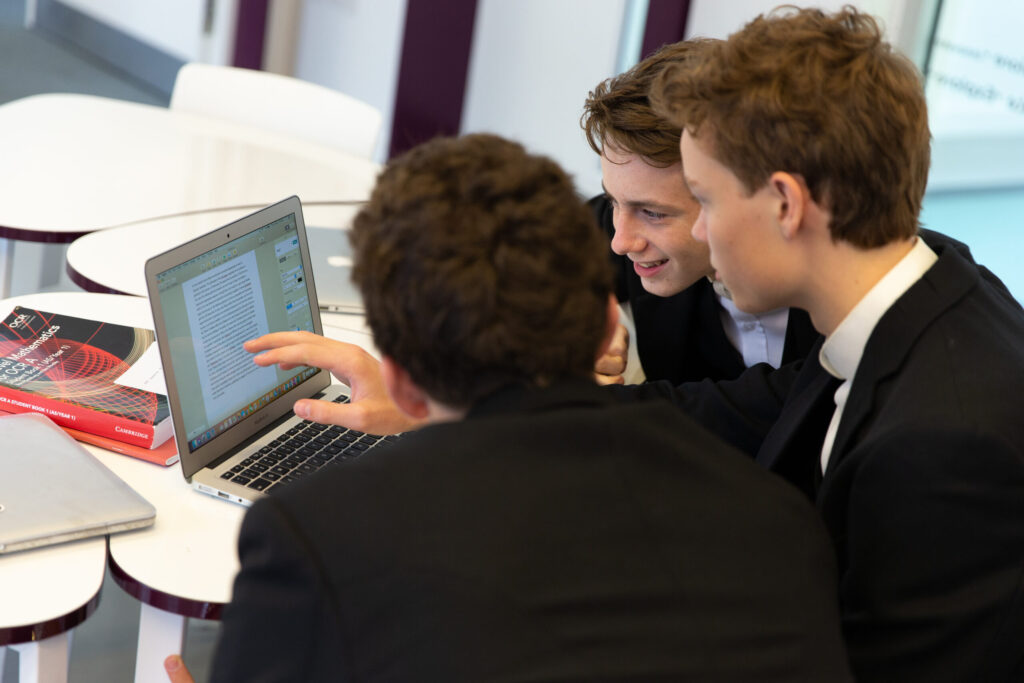(part 3)
Sue Sing
Researcher-in-Residence, Christ the King Sixth Form College
The significance and relevance of using evidence-informed practices with regards to the development of teaching and learning became apparent following its lead involvement in an externally-funded cross-sector action research project. This saw state and independent school teachers researching together, in genuinely reciprocal ways, to better understand what makes the difference for achieving high grades at GCSE and A-level. Being able to experience first-hand what this learning looked like, and felt like, and having opportunities to reflect on this and consider implications for their own practice, was reported as incredibly beneficial and empowering in terms of practitioners’ professional development. This unexpected outcome resulted in a significant shift in thinking at CTK, at senior leadership level, in terms of its provision and promotion of staff CPD opportunities: namely, this resulted in the introduction of CTK Professional Development Bursaries and the appointment of a Researcher-in- Residence to support and further develop research activities across the institution. In addition, most recently,
senior leadership groups at the college have become involved in using research-informed approaches to inform the development of its strategic practices.
With colleagues from various schools, we created the ‘Research in Schools Learning Community’ to try to attract like-willed people, based in schools, with responsibilities for leading and/or supporting the development of research in their institution. Given the growing movement around the role of research in schools, and schools being at a range of stages in terms of their ‘research journey’, it seemed timely and hopefully beneficial to establish a professional community within which we could create opportunities for learning with, and from, each other, and explore possibilities for collaboration. This group seeks to offer independent and state schools opportunities to develop their thinking through the sharing and exchange of knowledge, ideas and approaches. Through this collaborative mentality, our belief is we can support each other to strengthen what we do in our own schools and, in turn, help one another to further develop and embed an evidence-informed ethos and environment.
Tim Cain
Professor of Education, Edge Hill University
I recently gave a presentation at Eton College, addressing members of the Research in Schools Learning Community. My presentation on this day was based on data gathered from five research projects, mostly in Primary and Secondary schools; these projects involved interviews with around a hundred teachers and school leaders. The overarching research question that united all the projects was, ‘How can educational research impact on teachers and teaching?’
Qualitative analysis showed that the interviewees believed that research could impact in three broad ways: to inform decision making, to extend teachers’ mindsets, and to develop a school as an intelligent community. They also had two broad aims for research-informed practice: to improve outcomes for pupils, and to advance teachers’ professionalism. In principle, each of the three beliefs is coherent and justifiable. Research can inform decision making, particularly outside the classroom, although not in the straightforward way that is sometimes claimed.
By bringing evidence from research into discussions which include other forms of evidence, teachers and school leaders can make better choices among possible alternatives and can avoid making decisions which have previously been found wanting.
Research can also challenge ‘teaching mindsets’ –
the conscious and subconscious mental frameworks that teachers apply to the many swift and intuitive decisions that they take whilst teaching. By challenging teachers’ mindsets, research can prompt teachers to question their habitual practices, to employ deeper, more complex educational concepts and sometimes, to think about teaching and learning in new ways. Research can develop a school as an intelligent community because, by its nature, research encourages questioning, discussion and critique. Indeed research proceeds, at least in part, by principled attempts to disprove previous research. Some schools provide the means for staff to discuss research: they
encourage individuals and groups to undertake action research projects; they instigate research reading groups; they form research partnerships with universities and other organisations and they organise regular events such as annual research conferences, where staff can discuss their own research and published research.
It is important for schools to recognise the multiple ways in which research can inform practice. As Nicholson- Goodman & Garman (2007) found, if school leaders focus entirely on the ability of research to inform decision making at the whole-school level, they can be drawn into using research to ‘wield power’ rather than to encourage debate. To avoid this trap, school leaders can bear in mind the potential of research to extend teachers’ mindsets and to develop the school as an intelligent community.
(Professor Tim Cain’s book Research informed schools: Why? What? How? will be published by Routledge in early 2019).
References
BERA-RSA (2014). Research and the teaching profession. [online]. Goldacre, B. (2013). Building Evidence into Education [online].
Griffiths, M. (2014). Encouraging imagination and creativity in the teaching profession. European Educational Research Journal, 13(1), 117-129.
Hammersley, M. (1993). On the teacher as researcher. Educational Action Research, 1(3), 425-445.
Hargreaves, D. (1996). Teaching as a research-based profession: possibilities and prospects. Paper presented at the Teacher Training Agency Annual Lecture, April. [online]
Hattie, J. (2009). Visible learning for teachers: maximising impact on learning. New York: Routledge.
Nicholson–Goodman, J., & Garman, N. B. (2007). Mapping practitioner perceptions of ‘It’s research based’: scientific discourse, speech acts and the use and abuse of research. International Journal of Leadership in Education, 10(3), 283-299.
Saunders, L. (2010). The changing role of research in education, Education Today, 60 (2), 16–21.




